Is Private Browsing Really Private?
At DuckDuckGo, our vision is to raise the standard of trust online. To that end, we surveyed 5,710 random Americans about Private Browsing to understand what people know about and how they use this common privacy feature.
Key takeaways are below. Check out the full findings paper for details.
46% of Americans have used Private Browsing.
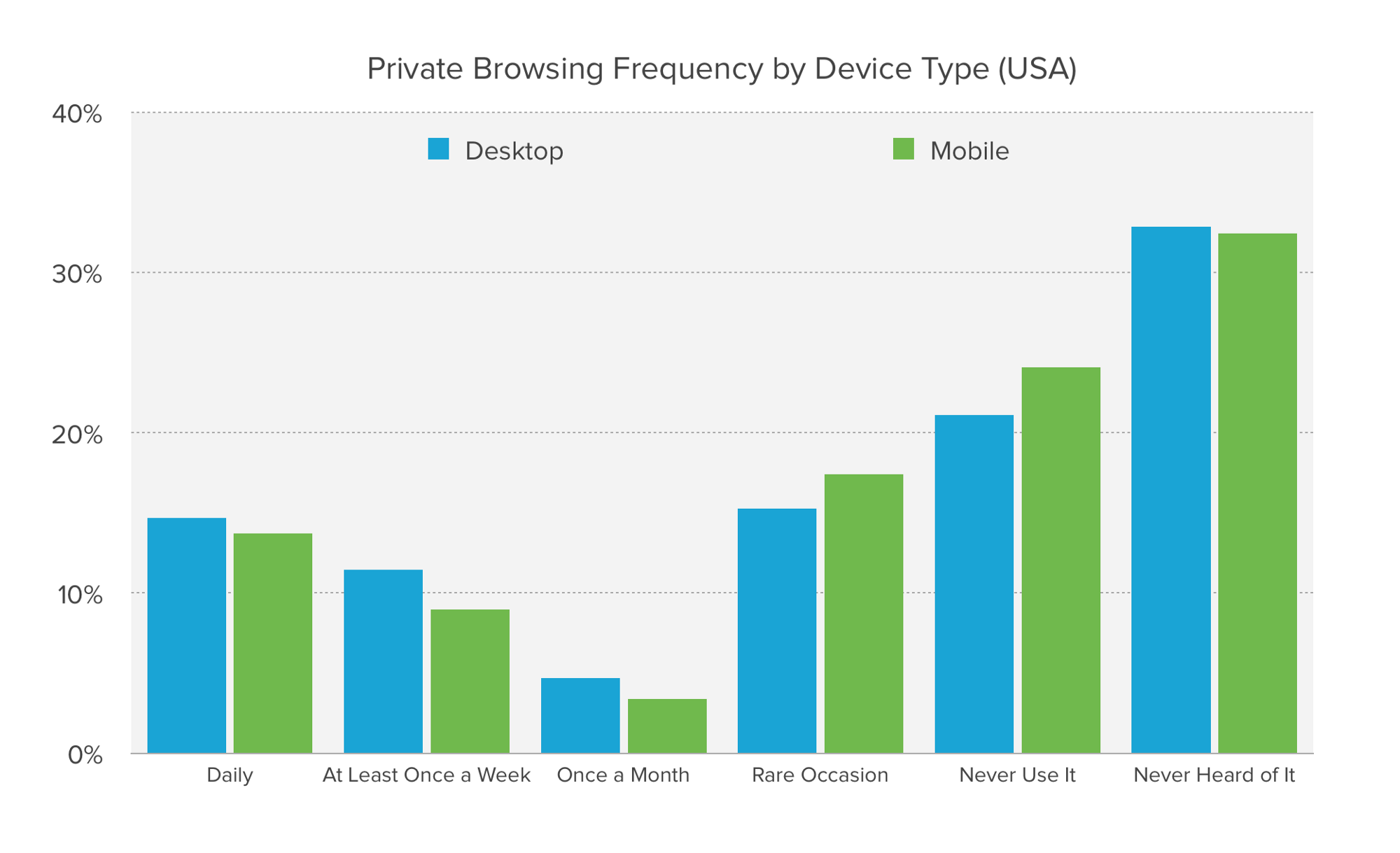
The number one reason people use Private Browsing is “Embarrassing Searches.”
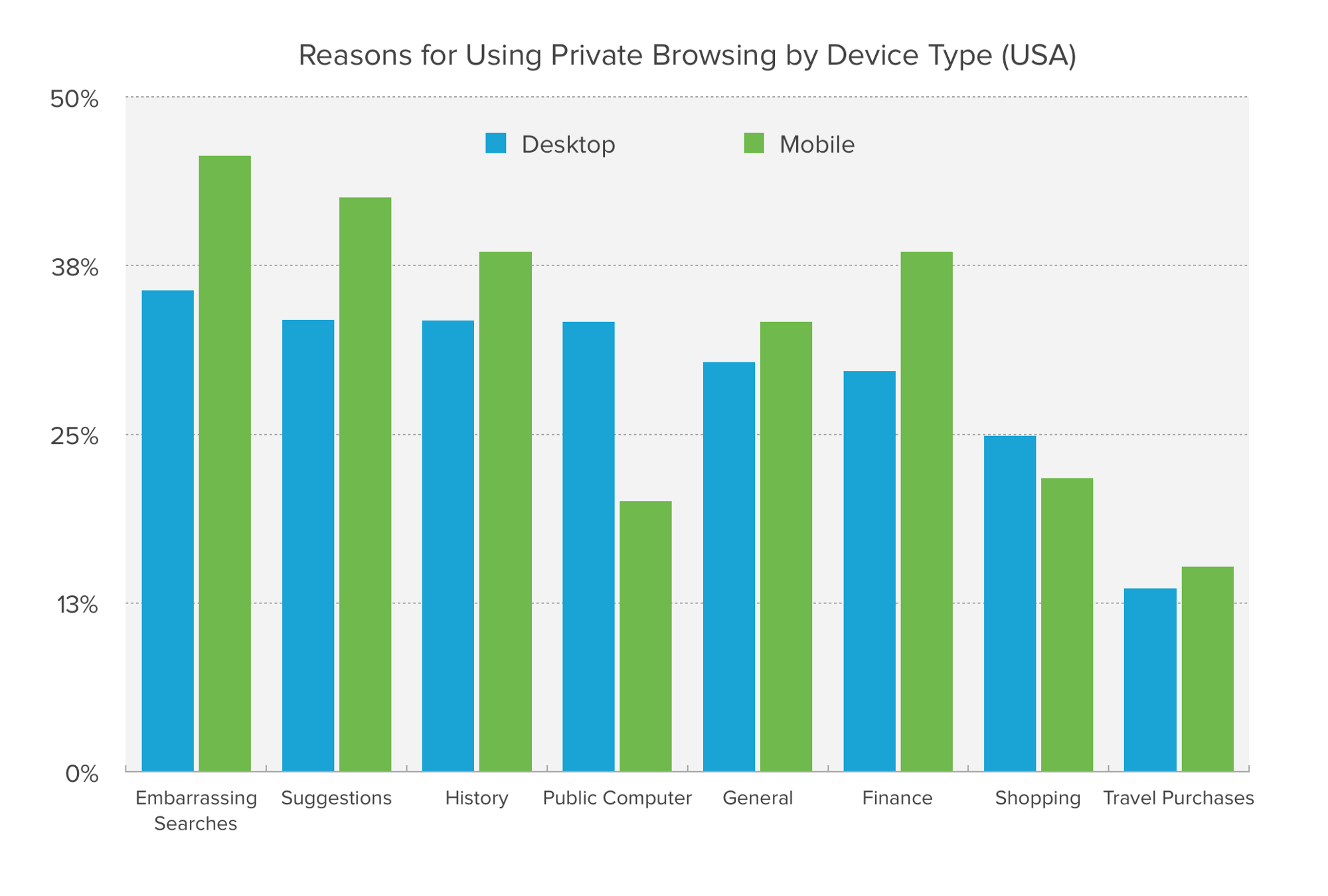
76% of Americans who use Private Browsing cannot accurately identify the privacy benefits it provides.
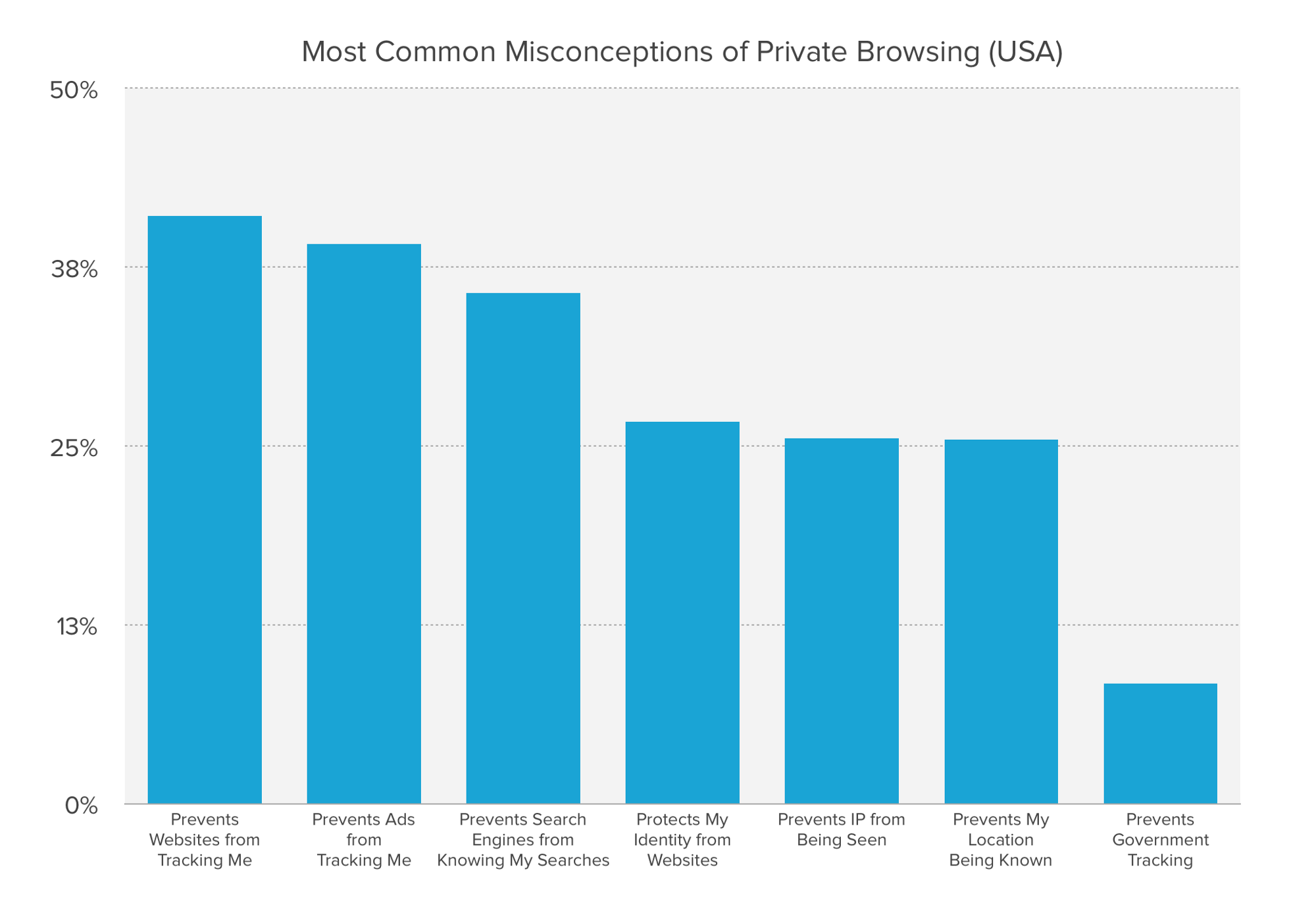
After asking users of Private Browsing about their knowledge of the feature, we informed these respondents about what privacy protections Private Browsing actually provides, and asked about their emotional reaction:
“Private Browsing mode only prevents your browser history from being recorded on your computer and does not offer any additional protection such as preventing the websites you visit from collecting your information (e.g. your searches on a search engine). How does that make you feel?”
65% of these respondents reported feeling “Surprised”, “Misled,” “Confused,” or “Vulnerable” upon learning about the limitations of Private Browsing.
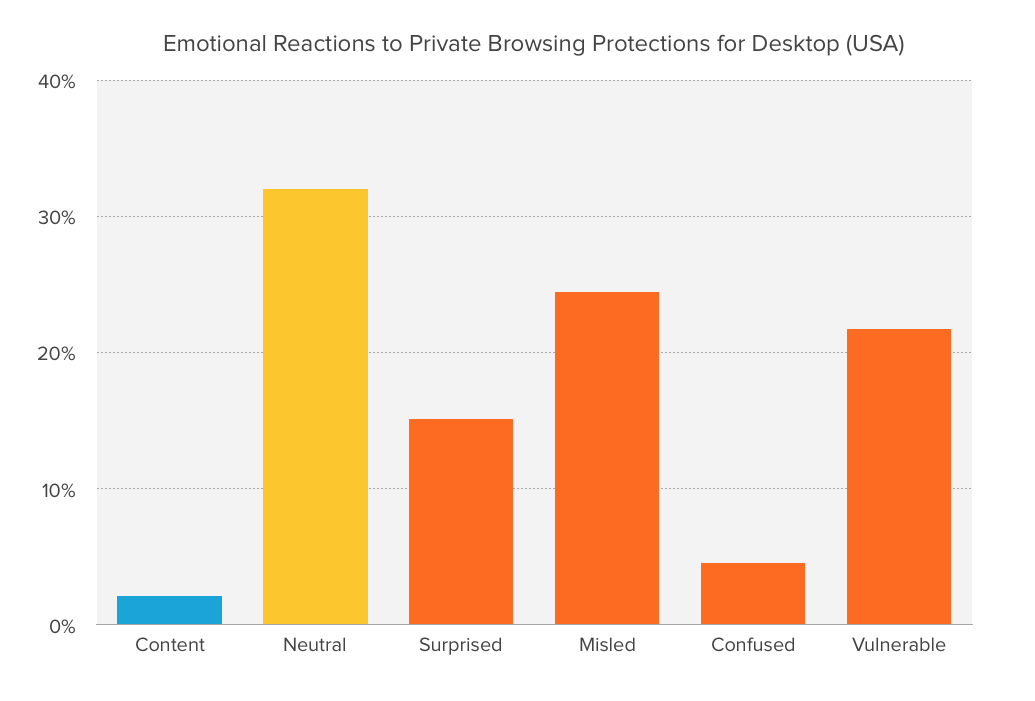
84% of Americans would consider trying another major web browser if it offered more features to help protect their privacy.
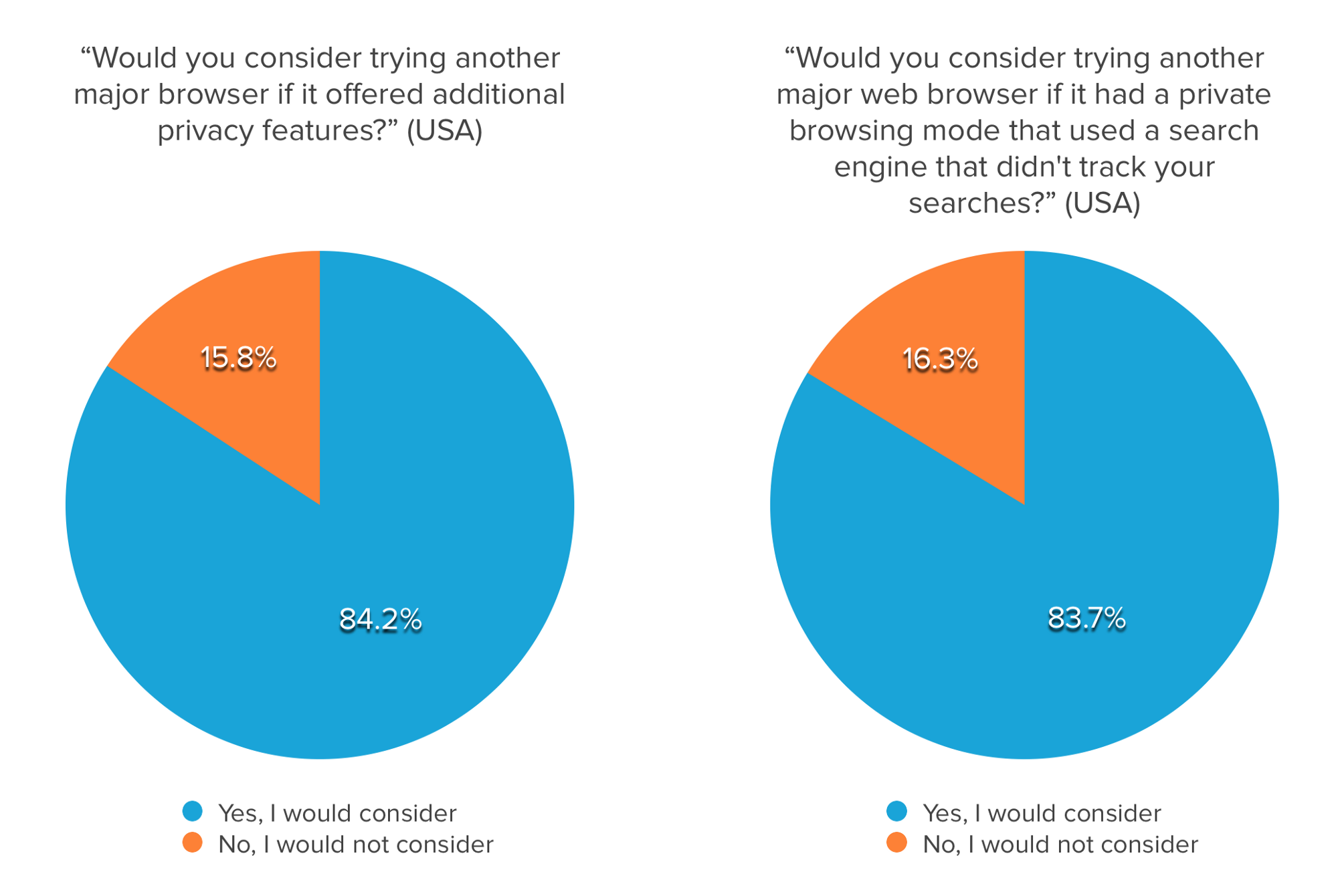
Despite Private Browsing being one of the most commonly known and used privacy features, we find that most people misunderstand the privacy protections it provides. Note, however, that some browsers are changing their behavior; for example, Firefox now includes tracking protection in private windows.
For more details on our Private Browsing survey, including breakdowns by age and usage frequency, please check out our findings paper.

For more privacy advice, follow us on Twitter & get our privacy newsletter.
